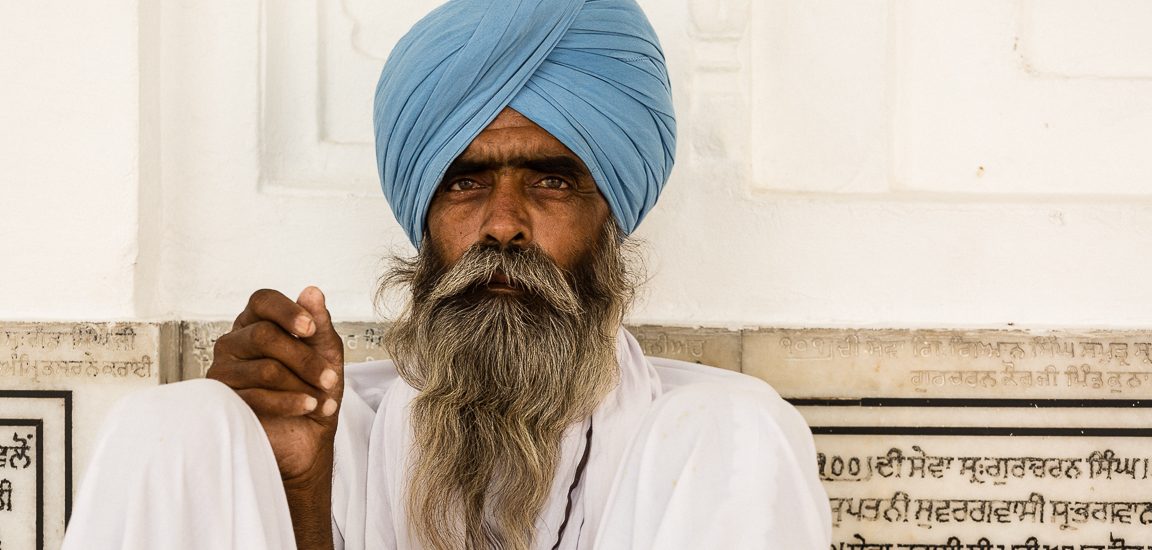Sikhism is a religion founded in the 15th century in the Punjab region of northern India. It was established by Guru Nanak Dev Ji, who was born in 1469 and was the first Guru of Sikhism. Guru Nanak Dev Ji sought to unify the different religious communities of the region, promoting equality, justice and devotion to one God. The history of Sikhism is strongly linked to the fight for equality and social justice.
Successive Sikh Gurus, over the years, advocated the abolition of the caste system, women’s liberation and religious tolerance. They also advocated the use of the sword to protect the oppressed and fight injustice. The tenth Guru, Guru Gobind Singh Ji, played a key role in the evolution of Sikhism by establishing the concept of the Khalsa in 1699. The Khalsa is an order of baptized Sikhs who adopt a distinctive appearance, using the name Singh (for men). or Kaur (for women) and following the five kakaar (the five articles of the Sikh faith):
1.- They believe in one God: The first article of the Sikh faith establishes the belief in one God, also known as Waheguru. Sikhs believe in the omnipresence and omnipotence of God, and consider all souls equal before him.
2.- They believe in the Guru: Sikhs have faith in the Guru Granth Sahib, the sacred book of the Sikhs, as their spiritual guide. They consider the Guru Granth Sahib to contain the teachings and divine knowledge necessary to live a virtuous life.
3.- Equality: The Sikh faith promotes equality among all people, regardless of race, religion, gender or caste. Sikhs strive to live just lives and treat everyone with respect and dignity.
4.- Honesty and hard work: Sikhs believe that honest work and sincere effort are fundamental to living a life of purpose and achieving spiritual fulfillment.
5.- Spiritual liberation or Mukti: Sikhs believe that through devotion to God, study of the scriptures and following Sikh principles, one can free oneself from the cycle of birth and death, and achieve unity with God.
Over the centuries, Sikhs faced persecution and repression from different governments and communities. However, they remained steadfast in their faith and continued to fight for justice and equality. Today, Sikhism has a large community around the world, with many places of worship known as gurdwaras. Sikhs continue to practice the fundamental principles of their faith, including meditation, charity, and equality among all human beings.
One of the remarkable facets of Sikhism lies in its hospitality and inclusivity. In every temple, irrespective of one’s creed, visitors are not merely welcomed; they are embraced. The spirit of langar, a community kitchen, epitomizes Sikh generosity. Here, anyone in need is offered not just a free meal but a warm place to stay, embodying the essence of selfless service and unconditional love, keys for dismantling societal barriers and fostering a world where compassion and unity prevail.
















